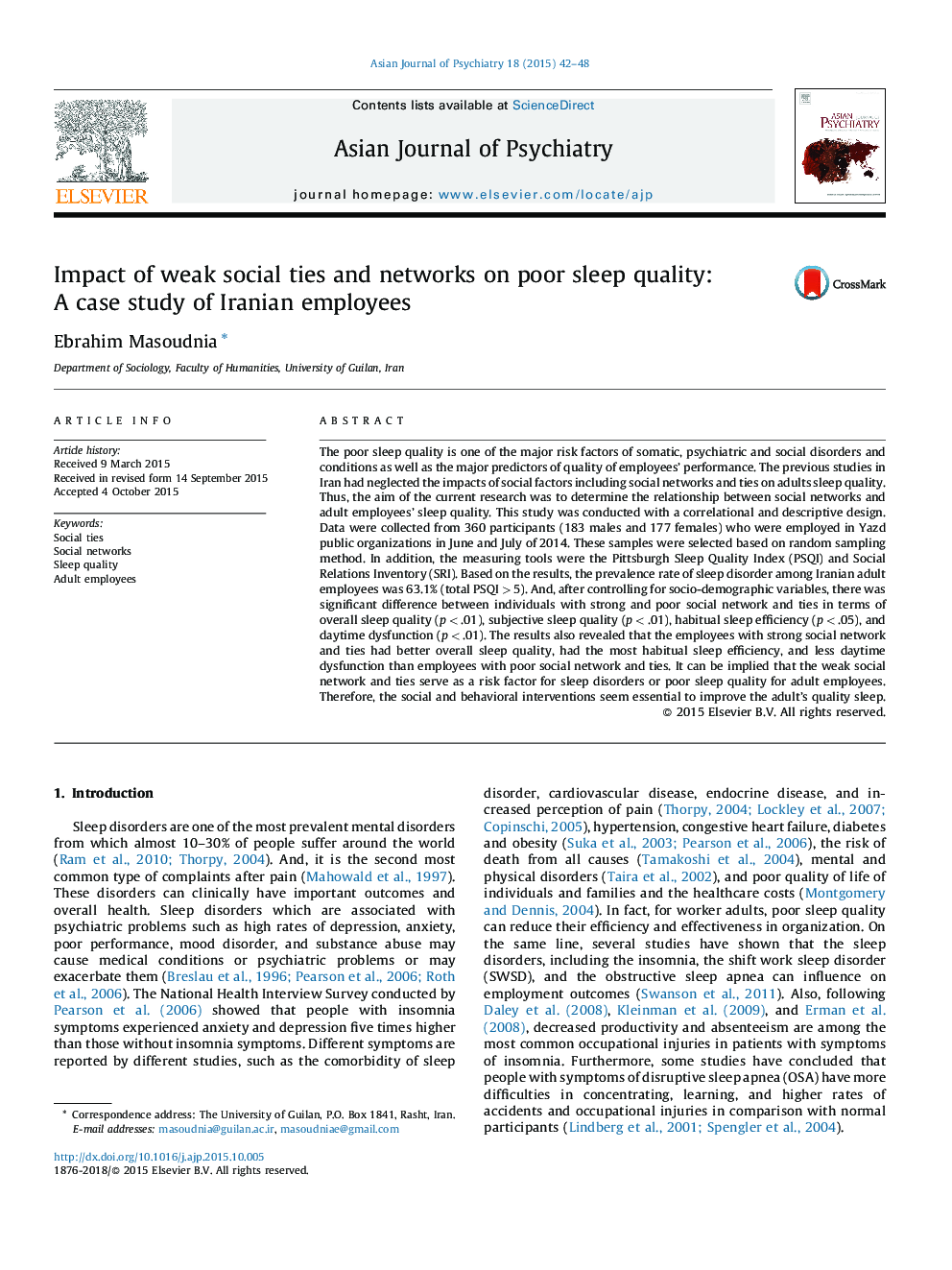| کد مقاله | کد نشریه | سال انتشار | مقاله انگلیسی | نسخه تمام متن |
|---|---|---|---|---|
| 316895 | 1432585 | 2015 | 7 صفحه PDF | دانلود رایگان |
• Sleep disorder prevalence rate in adult employee in Iran was much higher than the world.
• Weakness of social networks and ties leads to poor quality of sleep among adult.
• Poor subjective sleep quality was associated with lower levels of social ties.
• Better habitual sleep efficiency was associated with strong social ties.
• Poor relationships with others associated with daytime disfunctioning.
The poor sleep quality is one of the major risk factors of somatic, psychiatric and social disorders and conditions as well as the major predictors of quality of employees’ performance. The previous studies in Iran had neglected the impacts of social factors including social networks and ties on adults sleep quality. Thus, the aim of the current research was to determine the relationship between social networks and adult employees’ sleep quality. This study was conducted with a correlational and descriptive design. Data were collected from 360 participants (183 males and 177 females) who were employed in Yazd public organizations in June and July of 2014. These samples were selected based on random sampling method. In addition, the measuring tools were the Pittsburgh Sleep Quality Index (PSQI) and Social Relations Inventory (SRI). Based on the results, the prevalence rate of sleep disorder among Iranian adult employees was 63.1% (total PSQI > 5). And, after controlling for socio-demographic variables, there was significant difference between individuals with strong and poor social network and ties in terms of overall sleep quality (p < .01), subjective sleep quality (p < .01), habitual sleep efficiency (p < .05), and daytime dysfunction (p < .01). The results also revealed that the employees with strong social network and ties had better overall sleep quality, had the most habitual sleep efficiency, and less daytime dysfunction than employees with poor social network and ties. It can be implied that the weak social network and ties serve as a risk factor for sleep disorders or poor sleep quality for adult employees. Therefore, the social and behavioral interventions seem essential to improve the adult's quality sleep.
Journal: Asian Journal of Psychiatry - Volume 18, December 2015, Pages 42–48
